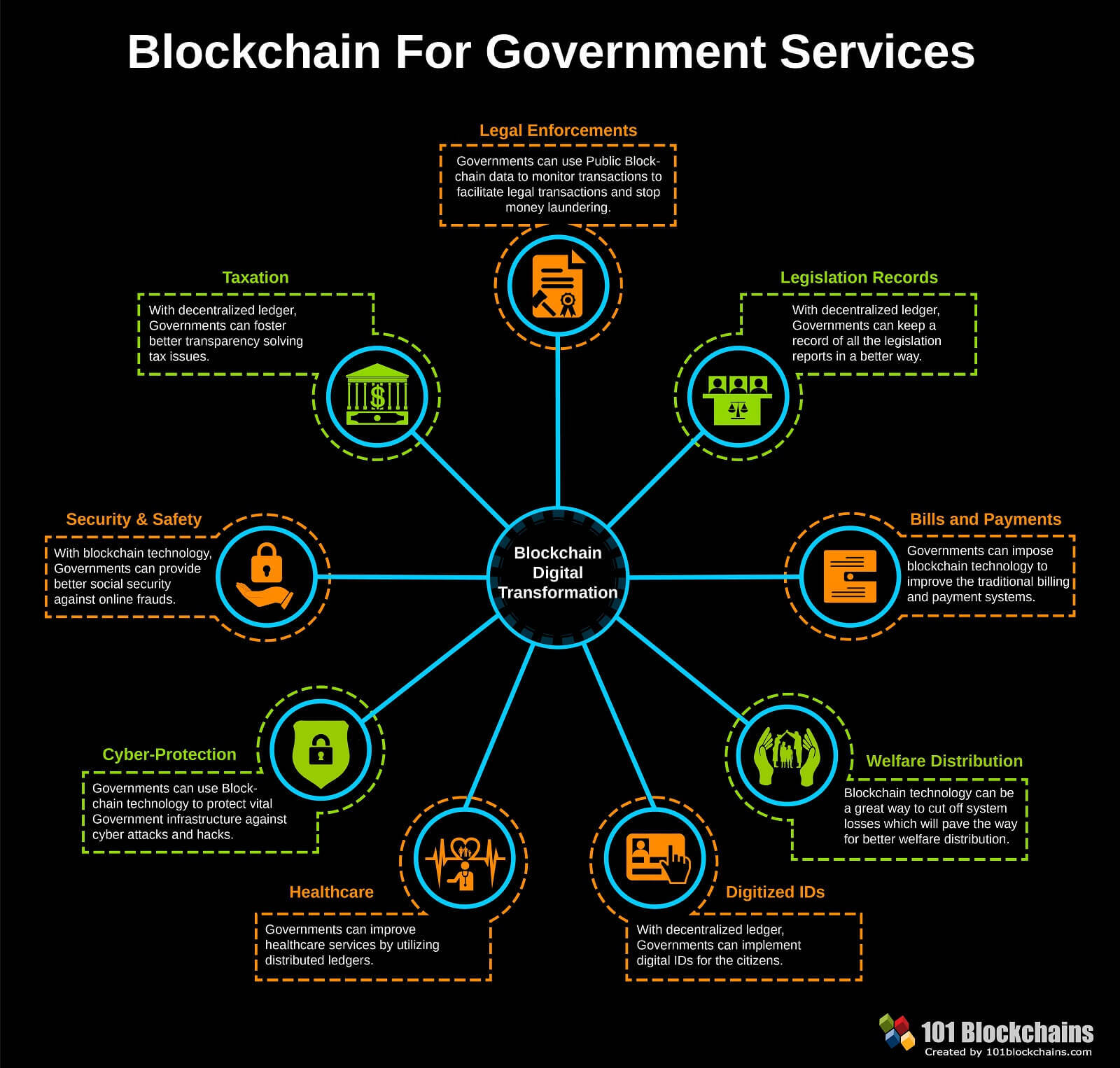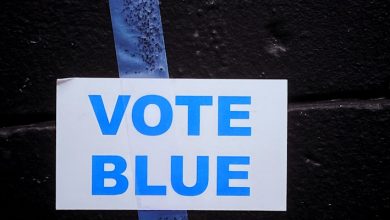Implementing Blockchain in Government Services for Transparency

- Understanding Blockchain Technology and its Potential in Government Services
- Benefits of Implementing Blockchain for Transparency in Government Operations
- Challenges and Solutions in Integrating Blockchain into Government Services
- Case Studies of Successful Blockchain Implementation in Government Agencies
- Ensuring Data Security and Privacy in Blockchain-based Government Services
- Future Trends and Opportunities for Blockchain Adoption in Government Sector
Understanding Blockchain Technology and its Potential in Government Services
Blockchain technology has gained significant attention in recent years for its potential to revolutionize various industries, including government services. Understanding how blockchain works and its implications for transparency in government operations is crucial for policymakers and citizens alike.
At its core, blockchain is a decentralized and distributed ledger that records transactions across a network of computers. Each transaction is verified by network participants, making it secure and transparent. This technology has the potential to enhance the efficiency and accountability of government services by providing a tamper-proof record of all transactions.
Implementing blockchain in government services can lead to increased transparency, as all transactions are recorded on a public ledger that is accessible to all network participants. This can help prevent fraud and corruption, as any unauthorized changes to the data would be immediately visible to all parties involved.
Furthermore, blockchain technology can streamline processes such as contract management, voting systems, and identity verification. By using smart contracts, government agencies can automate tasks and reduce the need for intermediaries, leading to cost savings and improved efficiency.
Overall, understanding the potential of blockchain technology in government services is essential for harnessing its benefits for increased transparency and efficiency. By embracing this technology, governments can build trust with citizens and create a more accountable and responsive public sector.
Benefits of Implementing Blockchain for Transparency in Government Operations
Implementing blockchain technology in government operations can bring about a multitude of benefits, particularly in terms of transparency. By utilizing blockchain, governments can ensure that all transactions and data are securely recorded and cannot be altered or tampered with. This level of transparency can help build trust among citizens and stakeholders, as they can have confidence in the accuracy and integrity of government operations.
One of the key advantages of implementing blockchain for transparency in government is the ability to track and trace transactions in real-time. This can help prevent fraud, corruption, and misuse of public funds, as all transactions are recorded on a decentralized ledger that is accessible to all parties involved. Additionally, blockchain can streamline processes and reduce bureaucracy, leading to more efficient and accountable government operations.
Furthermore, blockchain technology can enhance the security of government data and protect sensitive information from cyber threats and hacking attempts. By encrypting data and storing it on a distributed network, blockchain can significantly reduce the risk of data breaches and unauthorized access. This can help safeguard citizens’ privacy and ensure that their personal information is handled securely by government agencies.
Overall, implementing blockchain for transparency in government operations can lead to increased accountability, efficiency, and trust in the public sector. By leveraging this innovative technology, governments can demonstrate their commitment to openness and integrity, ultimately improving the delivery of public services and fostering greater public confidence in the government’s ability to serve the interests of its citizens.
Challenges and Solutions in Integrating Blockchain into Government Services
Integrating blockchain into government services presents several challenges that need to be addressed for successful implementation. One of the main challenges is the lack of understanding and awareness among government officials about blockchain technology and its potential benefits. This can lead to resistance to change and reluctance to adopt new systems.
Another challenge is the complexity of integrating blockchain into existing government infrastructure and systems. This requires significant technical expertise and resources to ensure compatibility and seamless operation. Additionally, concerns about data privacy and security can arise, as blockchain technology involves storing data in a decentralized and transparent manner.
One solution to these challenges is to provide comprehensive training and education programs for government employees to increase their knowledge and understanding of blockchain technology. This can help build trust and confidence in the new system and encourage adoption.
Furthermore, collaborating with experts in blockchain technology and engaging with the private sector can help overcome technical challenges and ensure a smooth integration process. By leveraging external expertise and resources, governments can streamline the implementation of blockchain in government services.
Implementing robust data protection measures and encryption protocols can address concerns about data privacy and security. By prioritizing security features in blockchain systems, governments can enhance trust among citizens and stakeholders.
In conclusion, while integrating blockchain into government services may pose challenges, with proper education, collaboration, and security measures, these obstacles can be overcome. By embracing blockchain technology, governments can enhance transparency, efficiency, and trust in their services for the benefit of all stakeholders.
Case Studies of Successful Blockchain Implementation in Government Agencies
Several government agencies around the world have successfully implemented blockchain technology to enhance transparency and efficiency in their services. These case studies serve as examples of how blockchain can revolutionize government operations:
- **Estonia:** The Estonian government has integrated blockchain into various sectors, including healthcare, banking, and voting systems. By using blockchain, Estonia has been able to secure citizen data, reduce bureaucracy, and streamline processes.
- **Singapore:** The Singaporean government has implemented blockchain in areas such as trade, supply chain management, and identity verification. This has led to increased trust among stakeholders, reduced fraud, and improved data accuracy.
- **Dubai:** Dubai has launched the “Blockchain Strategy,” aiming to make the city the first blockchain-powered government by 2020. Through initiatives like “Blockchain-as-a-Service” and the “Dubai Blockchain Platform,” the government has enhanced data security, increased efficiency, and promoted innovation.
These successful implementations demonstrate the potential of blockchain to transform government services, making them more transparent, secure, and efficient. As more agencies adopt this technology, we can expect to see further improvements in governance and public trust.
Ensuring Data Security and Privacy in Blockchain-based Government Services
Ensuring data security and privacy in blockchain-based government services is crucial for maintaining trust and credibility in the system. By leveraging blockchain technology, governments can enhance the security of citizens’ data and ensure that privacy is protected at all times.
One of the key features of blockchain technology is its immutable and transparent nature, which makes it difficult for malicious actors to tamper with data without being detected. This security feature is essential for government services that deal with sensitive information such as health records and financial data.
Additionally, blockchain uses cryptography to secure transactions and data, ensuring that only authorized parties can access and view the information. This encryption helps protect citizens’ privacy and prevents unauthorized access to sensitive data.
Furthermore, blockchain technology allows for data to be stored in a decentralized manner, reducing the risk of data breaches and cyber attacks. This distributed storage model enhances security by eliminating single points of failure and making it harder for hackers to compromise the system.
Future Trends and Opportunities for Blockchain Adoption in Government Sector
As we look towards the future, there are several emerging trends and opportunities for the adoption of blockchain technology in the government sector. Governments around the world are increasingly recognizing the potential benefits of blockchain in improving transparency, security, and efficiency in their services. Here are some key trends and opportunities to consider:
- Smart Contracts: One of the most promising applications of blockchain in the government sector is the use of smart contracts. These self-executing contracts can help automate and streamline various processes, reducing the need for manual intervention and minimizing the risk of errors.
- Identity Management: Blockchain technology can also be used for secure and verifiable identity management. By storing identity information on a blockchain, governments can enhance security and privacy while also improving the efficiency of identity verification processes.
- Supply Chain Management: Another area where blockchain can make a significant impact is in supply chain management. By recording transactions on a transparent and immutable ledger, governments can track the movement of goods and services more efficiently and accurately.
Overall, the future looks promising for the adoption of blockchain in the government sector. By embracing these emerging trends and opportunities, governments can enhance transparency, security, and efficiency in their services, ultimately benefiting both citizens and government organizations.





